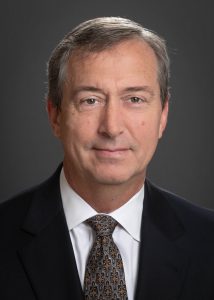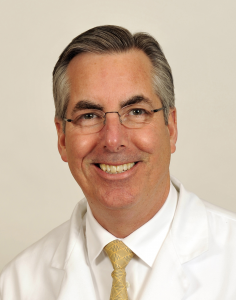June 2024 | Volume 17, Issue 3


ABR Trustee Daniel C. Davis, MD, captured this image of the total eclipse on April 8, 2024, in Carbondale, Illinois.

Nothing Can Eclipse Our Story Lineup This Issue
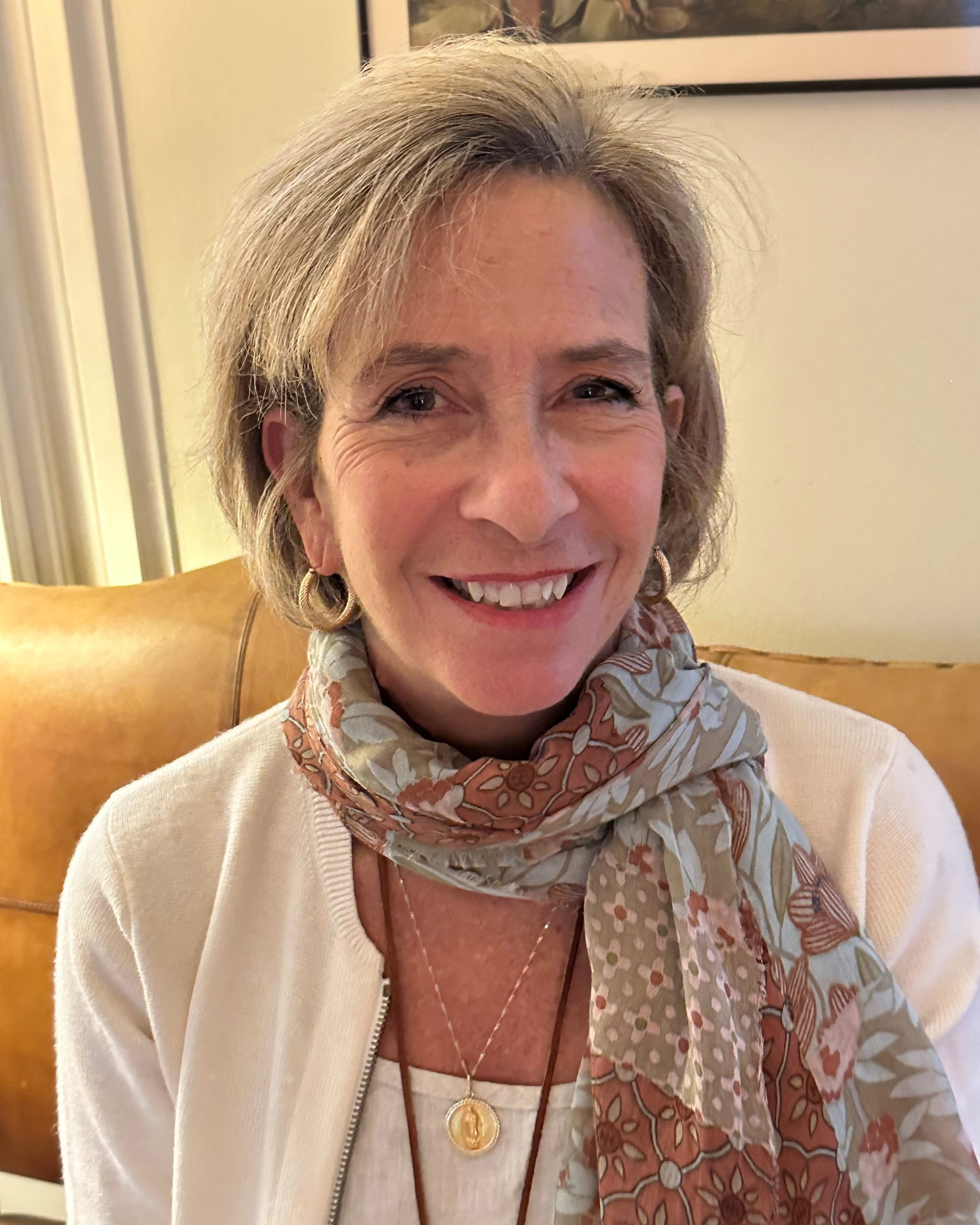 By Desiree Morgan, MD, ABR Governor
By Desiree Morgan, MD, ABR Governor
2024;17(3):1
What a spectacular photo of the recent eclipse! Thanks to Trustee Dan Davis for sharing his amazing capture of this rare and awe-inspiring natural phenomenon. With summer just around the corner, I hope that each of you gets out in nature to witness things great and small. Before your summer adventures with family and friends, I invite you to take a moment to check out what is happening at the ABR.
In this issue . . .
ABR President Robert M. Barr, MD, explains how the Board of Governors and the Board of Trustees support staff and volunteers in fulfilling the ABR’s mission and describes the qualifications of the diverse set of individuals who make up these two distinct bodies.
ABR Executive Director Brent Wagner, MD, MBA, applauds the ABR’s certification managers, who take pride in listening to candidates and diplomates and providing specific, workable solutions to their customer service issues. He also discusses upcoming enhancements that will make myABR a more personalized interface.
Click HERE to read more.

ABR’s Two Governing Bodies Direct and Support the Mission, Volunteers, and Staff
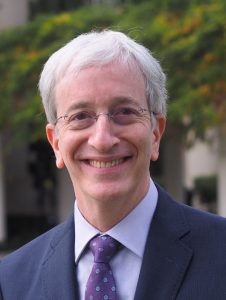
2024;17(3):2
ABR governance consists of two major elements: the Board of Governors and the Board of Trustees.
The Board of Governors (BOG) oversees the organization’s fulfillment of the mission and is responsible for the corporate powers, business, and affairs of the ABR. This oversight role is consistent with the fiduciary duties owed by the board members of a nonprofit organization: (1) the “duty of care” (taking care of the nonprofit by ensuring prudent use of all assets, including facility, people, and good will); (2) the “duty of loyalty” (ensuring that the nonprofit’s activities and transactions are, first and foremost, advancing its mission); and (3) the “duty of obedience” (ensuring that the nonprofit obeys applicable laws and regulations).
The 10 members of the BOG strive to make decisions that directly support the mission. Recognizing that radiologic professionals who aspire to be or are already certified by the ABR are the vehicle by which the Board advances health and healthcare in the diagnostic, interventional, medical physics, and radiation oncology fields, the Board attempts to balance the rigor of assessment and other certification standards with the reasonableness of the required efforts to demonstrate ongoing competency as part of the Continuing Certification program. Discussions among BOG members benefit from the varied backgrounds of individuals with diverse experience in both academic and nonacademic practice settings, often with perspectives that are the product of senior leadership roles in institutions or national organizations. The BOG also includes a public member, whose opinions from outside the field of radiology are vital to the organization’s mission of serving the public and its more than 30,000 diplomates.
Click HERE to read more.

ABR Customer Service Provides Targeted Solutions to Certification Questions
By Brent Wagner, MD, MBA, ABR Executive Director
2024;17(3):3
Nearly 2,000 radiologic professionals are initially certified by the ABR each year, and more than 34,000 currently certified individuals maintain their existing certificate through our Continuing Certification program. Although most interactions with the Board are easily accomplished online, variations in professional or personal circumstances may require more detailed personal communication. The ABR’s certification managers communicate directly with candidates and diplomates and attempt to find workable solutions to specific questions. These interactions may include emails, phone calls, or a combination of both. Incoming requests range from cancellation of an exam registration to clarification of an ABR policy or website post.
Our staff pride themselves not only on their willingness to listen but also their sincere attempts to provide a solution that is satisfactory to the candidate or diplomate. Unfortunately, sometimes our willingness to be flexible is constrained by the imperative to apply policies and requirements as consistently as possible. Consultation among certification managers is frequent and allows them to consider helpful responses to questions and problems raised by those in the certification process. Persistent concerns are elevated to more senior staff when needed, including the associate executive director for each discipline or the executive director.
Click HERE to read more.

ABR Presentation at the Association of University Radiologists Meeting Highlights New DR Oral Exam
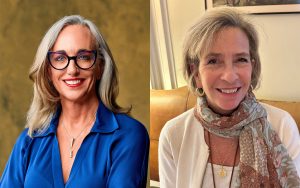 By Cheri L. Canon, MD, ABR President-elect, and Desiree E. Morgan, MD, ABR Governor
By Cheri L. Canon, MD, ABR President-elect, and Desiree E. Morgan, MD, ABR Governor
2024;17(3):4
The ABR had an opportunity to present an update at the Association of University Radiologists (now the Association of Academic Radiology [AAR]) meeting in Boston in April.
Steve Simoneaux, MD, diagnostic radiology vice chair for the ABR Board of Trustees, presented an overview of the new DR Oral Certifying Exam to be introduced in early 2028. Information was shared online soon after last year’s announcement regarding the new exam and it has been supplemented over time, but Dr. Simoneaux provided a summary of important elements.
Most notably, the exam will be given remotely using case sets from seven categories1 to assess the clinical, observation, communication, and professionalism skills required of an independently practicing diagnostic radiologist. Dr. Simoneaux’s presentation also noted the differences between the previous oral exam and the 2028 model: the new exam will include not only enhanced standardization of the scoring rubrics but also uniform case sets that will vary little from one examiner to the next within a specific exam category for each testing session.
Click HERE to read more.

DEI Training Helps Optimize the Oral Exam Experience
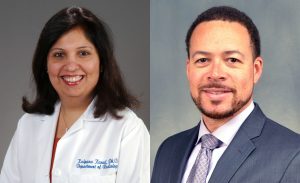 By Kalpana M. Kanal, PhD, and Paul J. Rochon, MD, ABR Trustees
By Kalpana M. Kanal, PhD, and Paul J. Rochon, MD, ABR Trustees
2024;17(3):5
The ABR is dedicated to incorporating diversity, equity, and inclusion (DEI) in all its efforts and activities with candidates, diplomates, volunteers, staff, and the public. The ABR DEI Committee is responsible for making recommendations and developing and supporting initiatives to create and sustain a diverse, equitable and inclusive environment. The DEI Committee comprises trustees from diagnostic radiology, interventional radiology, medical physics, and radiation oncology as well as representatives from the ABR Board of Governors. Over the past year, the committee has been evaluating options for introducing DEI unconscious bias training for ABR volunteers. Since most receive DEI workplace training at their places of employment, the ABR has been focused on developing DEI training geared more toward ABR activities.
We recently conducted a pilot to compare prerecorded versus live DEI training for oral examiners. We tailored one vendor’s DEI training program for use with examiners who participated in the Medical Physics Oral Certifying Exam. A prerecorded version of the DEI training was sent to all examiners to review in advance of the exam. On-site examiners received additional DEI training that was similar to the prerecorded version but presented in a live interactive format. The purpose was to determine which format would work best for future DEI training.
Click HERE to read more.

Advisory Committee Feedback Improves Communication Between ABR and Trainees
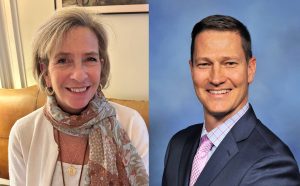 By Desiree E. Morgan, MD, ABR Governor, and David Laszakovits, ABR Communications Director
By Desiree E. Morgan, MD, ABR Governor, and David Laszakovits, ABR Communications Director
2024;17(3):6
The Diagnostic Radiology Initial Certification Advisory Committee was created more than 10 years ago to allow candidates and program directors to provide feedback to the ABR in efforts to:
- Improve the content and design of communications between the ABR and trainees.
- Identify, discuss, and work to resolve concerns regarding ABR actions or proposals, such as changes in initial certification exam content or operations.
- Investigate methods for improving communication between the ABR and trainees.
- Develop methods to assess the effectiveness of proposed modifications in communications.
- Use these metrics to modify our approaches to communication.
Members of the committee, who serve a two-year term, are nominated by the American College of Radiology (ACR), the Association of Academic Radiology (AAR), the Association of Program Directors in Radiology (APDR), the American Alliance of Academic Chief Residents in Radiology (A3CR2), the ACGME Diagnostic Radiology Review Committee, or the Radiological Society of North America (RSNA).
Click HERE to read more.

Change in the Timing of the IR/DR Oral Certifying Exam
By James B. Spies, MD, MPH, ABR Associate Executive Director for Interventional Radiology
2024;17(3):7
Board certification is a central goal of graduating residents in interventional radiology. Many employers and health systems require certification within a specified interval after board eligibility is established and therefore the timing of the exams is important. For IR residents, the computer-based Qualifying (Core) Exam is the same as for diagnostic radiology residents and occurs after 36 months of training. Upon graduation, there are two components of the certifying exam for IR candidates to consider – computer-based and oral. Both need to be passed to become IR/DR certified.
The computer-based component is given once a year, usually in the early fall, coordinated with administration of the current computer-based Diagnostic Radiology Certifying Exam. Graduating IR residents qualify to take this exam upon successful completion of their training, and they may register for the exam the same year as their graduation.
When interventional radiology was a subspecialty of diagnostic radiology, IR fellowship graduates were required to have a full year in practice prior to taking the oral component of the certifying exam, and thus certification was delayed until the following calendar year. Mindful of the burden this might have on candidates trying to meet certification requirements in their practice, this requirement was changed with the new IR residencies in 2020, and those graduates qualified for the oral exam immediately after completion of training. The last group of fellowship graduates completed training in June 2020, and all subsequent graduates have been qualified to sit for the certifying exam at the fall administration that same year.
Click HERE to read more.

TMP Qualifying Exam Committee Supports ABR Mission
By Matthew B. Podgorsak, PhD, ABR Board of Trustees Chair; Kalpana M. Kanal, PhD, and Robert A. Pooley, PhD, ABR Trustees; Jennifer Stickel, PhD, Future ABR Trustee; and Geoffrey S. Ibbott, PhD, ABR Associate Executive Director for Medical Physics
2024;17(3):8
For medical physics (MP) candidates seeking initial board certification, the ABR administers three computer-based qualifying exams followed by an oral certifying exam. The qualifying exams consist of two Part 1 exams (general and clinical) and a Part 2 exam specific to one of the three medical physics disciplines: diagnostic (DMP), nuclear (NMP), or therapeutic (TMP). To complete the board certification process, a candidate must pass a final oral certifying exam (Part 3) in their discipline. Eligibility requirements and timelines for each exam can be found here: www.theabr.org/medical-physics.
Content for each exam is developed by committees of MP volunteers, all of whom participate in the Continuing Certification program. Each committee has approximately 10 members who are subject matter experts, along with a chair who is responsible for the committee’s work. An associate chair is selected during the chair’s last year on the committee to ensure a seamless transition to new leadership. A committee is also assigned two ABR staff exam developers who provide administrative support.
Click HERE to read more.

Volunteering With the ABR Allows Radiation Oncologists to Give Back
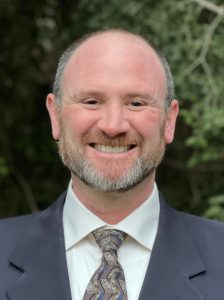 By Michael Yunes, MD, Associate Executive Director for Radiation Oncology
By Michael Yunes, MD, Associate Executive Director for Radiation Oncology
2024;17(3):9
The heart and soul of the ABR is the amazing core of approximately 1,300 volunteers, including more than 300 in radiation oncology. In our profession, physicians continually give to patients and their families, but we also find time and energy to support many other causes.
The ABR plays a vital role in preserving the quality of our field, developing future physicians, and maintaining public trust. One person or even a few people cannot perform this task, which is why volunteers are required to govern and manage the vast amount of information that is essential to our mission.
There are many opportunities to engage with the ABR with widely varied time requirements. Applying is simple: you can reach the application directly through myABR. On the application, you will be asked for your CV, for references, and in what area you would like to volunteer. Many people choose to volunteer as an expert in a clinical disease site, but that is not necessary nor what the ABR always needs. While everyone is aware that we have disease specialty committees, we also need clinicians for radiation and cancer biology, medical physics for radiation oncology, and many other important roles. Below is a list of volunteer committees to which any ABR diplomate participating in Continuing Certification can apply, regardless of clinical specialty or practice setting. Volunteers must be certified for one year to be eligible for many committees, two years for exam question writing, and at least five years to be an oral examiner.
Click HERE to read more.

Visiting Scholars Finding Program ‘Enriching,’ ‘Engaging’
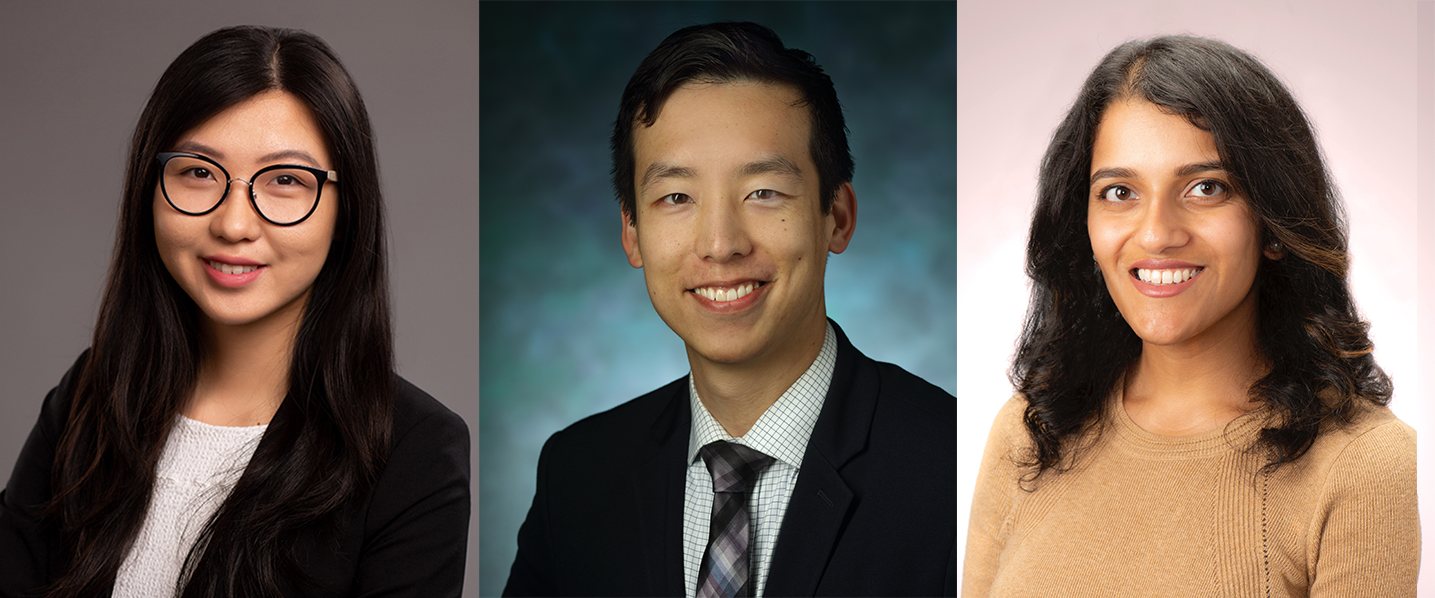
By Rodney Campbell, ABR Communications Manager
2024;17(3):10
When the ABR Board of Governors approved funding to sponsor the American Board of Medical Specialties (ABMS) Visiting Scholars Program starting in 2022, it provided another avenue for residents and ABR-certified early career physicians and physicists to pursue their research goals.
Four physicians have benefitted from being selected for the program so far. The current class includes Leslie Chang, MD (radiation oncology); Francis Deng, MD (diagnostic radiology); and Ria Mulherkar, MD (radiation oncology). Sara Hunter, MD (diagnostic radiology), was the sole member of last year’s class.
Applications for the next cohort will be accepted until June 17.
We asked our three current Visiting Scholars for updates on their projects and what they think of the experience.
Click HERE to read more.

‘Black Box’ Curiosity Led Him to Become ABR Volunteer
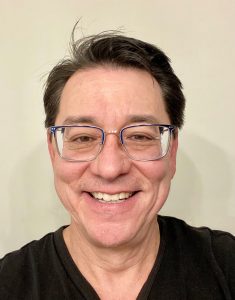
By Rodney Campbell, ABR Communications Manager
2024;17(3):11
Like many of his colleagues, Brian Funaki, MD, remembers what it was like to earn ABR certification as a diagnostic radiologist in the 20th century.
All roads led to Louisville’s Executive West Hotel. Now a Crowne Plaza property, the hotel was the site of in-person oral certifying exams that candidates had to pass to earn Initial Certification. ABR staff spent weeks there every year and thousands of anxious candidates walked the hotel’s hallways.
It was necessary but not everyone’s idea of fun.
“Anybody who’s my age, if you mention Louisville, the hair on the back of your neck stands up a little bit,” Dr. Funaki said. “It’s something that anyone who has been through will never forget.”
That experience was part of the reason why Dr. Funaki wanted to become an ABR volunteer. Now a question writer and oral examiner for the IR/DR Certifying Exam, he knows what goes into compiling and administering ABR exams. He has looked inside what he once considered a “Black Box.”
Click HERE to read more.

Laughter Lightens the Challenge of Writing Exam Questions
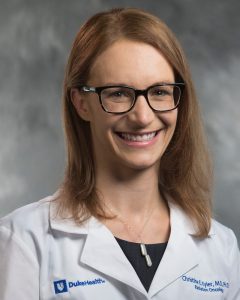
By Rodney Campbell, ABR Communications Manager
2024;17(3):12
Writing questions for ABR exams is serious work. But volunteers can still have fun in the process.
Christine Eyler, MD, PhD, a radiation oncologist and member of a committee that develops questions for the Biology and Physics Qualifying Exam, said she and her colleagues find ways to keep the mood light even as they spend hours writing and reviewing questions for candidates.
“I laugh a lot,” she said. “It’s a funnier group than I ever thought there would be writing radiation biology questions. But people are legitimately funny, and it’s been a really warm group.”
Learning to write fair and relevant questions is challenging. New committee members go through a breaking-in process the first several times they try. It’s not something they do in their regular jobs.
“In the first review of questions, it was almost like stage fright in terms of having to explain and defend your questions,” she said. “But I feel more like it’s a collaborative workshop than a spotlight on deficiencies. That’s been really pleasant.”
Click HERE to read more.

Diplomates Prefer OLA for Part 3 Continuing Certification Requirement
2024;17(3):13
In this video, ABR Executive Director Brent Wagner, MD, MBA, talks about the Part 3 requirement (“Assessment of Knowledge, Judgment, and Skills”) for Continuing Certification. Compared with a point-in-time exam, Online Longitudinal Assessment (OLA) has been overwhelmingly preferred by ABR diplomates because it offers immediate feedback on specific question topics, a dashboard to show progress and performance relative to the standard, and an opportunity to learn (the formative component) while being assessed. The “decline” option for a small number of specific questions that are not related to a diplomate’s professional practice allows for customization and enhanced relevance of the exercise.
For a small number of diplomates, the alternative to OLA is the Continuing Certification Exam (CCE). The CCE is offered to diplomates who choose not to participate in OLA or who have not met the passing standard via OLA. CCE content differs from OLA and requires some review or targeted study to refresh one’s knowledge of topics relevant to the practice of the discipline.
For more information, please see the article we published in April.
Deadline to Start Answering OLA Questions Fast Approaching
By Rodney Campbell, ABR Communications Manager
2024;17(3):14
An important date is coming for diplomates participating in Continuing Certification (formerly MOC) who haven’t started answering OLA questions yet this year. August 4 is the last day when those diplomates can start answering questions and still reach their OLA progress requirement for the year.
Here are a few things to consider as you assess your OLA participation.
Staying on Pace Is Important
Since two questions are offered to most participants every week, 104 are available to be answered each year. To meet the annual progress requirement, most diplomates need to answer only 52 questions per year. OLA allows substantial flexibility regarding when diplomates answer questions, as questions do not expire until four weeks after they are offered.
Avoid Forfeited Questions
Questions that are required but unanswered for a given year are considered “forfeited” and count as incorrect responses. For example, if you are required to answer 52 questions and only answer 50, the two unanswered will be “forfeited” and scored as incorrect.
Click HERE to read more.

William J. Casarella, MD, DABR, FACR, FSIR (11/17/1937 – 02/02/2024)
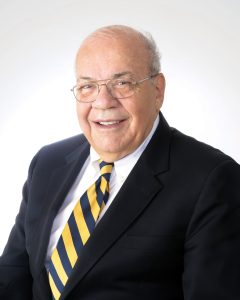
By Gary J. Becker, MD, Former ABR Executive Director
2024;17(3):15
In February, we lost a world-renowned pioneering interventional radiologist, extraordinary medical leader, husband, father, grandpa (of 10), friend, and colleague — Bill Casarella. Born to Italian immigrant parents in Scranton, Pennsylvania, Bill grew up in Trenton, New Jersey, graduated from Yale University (cum laude ’59) and Harvard Medical School (’63), interned in internal medicine at the University of Pennsylvania, and did a year in internal medicine at Boston City Hospital before serving two years as an Army flight surgeon in Korea.
Upon returning to the U.S., Bill completed a diagnostic radiology residency at Columbia-Presbyterian Medical Center in New York City, and then remained on the faculty for 11 years. He became widely known for his work in vascular and interventional radiology — most notably in angioplasty and interventional treatment of gastrointestinal bleeding, but also in nonvascular interventions — and rose to professor and chief of the cardiovascular radiology section, and vice chair of radiology.
Click HERE to read more.

Radiation Oncologist Named to ABR Board of Trustees
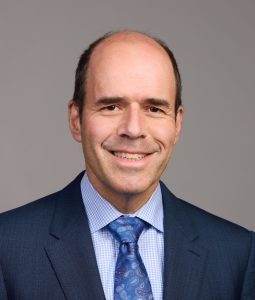
2024;17(3):16
ABR volunteer and radiation oncologist Kenneth Rosenzweig, MD, has been named to the organization’s Board of Trustees (BOT). Dr. Rosenzweig will start at the end of the fall board meeting in late September.
Dr. Rosenzweig is chair of the department of radiation oncology at Mount Sinai Health System and a professor in the department of radiation oncology at the Icahn School of Medicine at Mount Sinai in New York.
Dr. Rosenzweig earned his board certification in 1997 and has been an ABR volunteer since 2002, serving in multiple roles, including question writer and oral examiner. He most recently served as chair of the lung/sarcoma section of the Qualifying Exam. He received the ABR Lifetime Service Award in 2015.
Click HERE to read more.
Window to Apply for Visiting Scholars Program Closing Soon
2024;17(3):17
Time is running out for residents and early career physicians and physicists to apply for the American Board of Medical Specialties (ABMS) Visiting Scholars Program.
Applications will be accepted until June 17. Visiting Scholars participate in research projects that address pressing health care issues and research priorities for the Member Board community during the one-year, part-time program. The ABR partners with the ABMS to assist candidates and diplomates with their research efforts and leadership development.
The ABR’s goal is to fund up to four projects each year, preferably with one participant from each of the specialties that it certifies: diagnostic radiology, interventional radiology, medical physics, and radiation oncology.

May 28 Blog
Radiology’s Inside View Can Help Identify Eating Disorders
May 21 Blog
Volunteer Encourages Others to Follow His Path
May 7 Blog
ABR Trustees Value Their Volunteer Experiences
April 30 Blog
Urology Resident Finds It’s Never Too Late to Switch to Radiology
April 13 Blog
She’s Ready to Serve Patients, Profession in New Ways as ACR CEO
April 9 Blog
Volunteer’s College Choice was a Good Kind of Different


